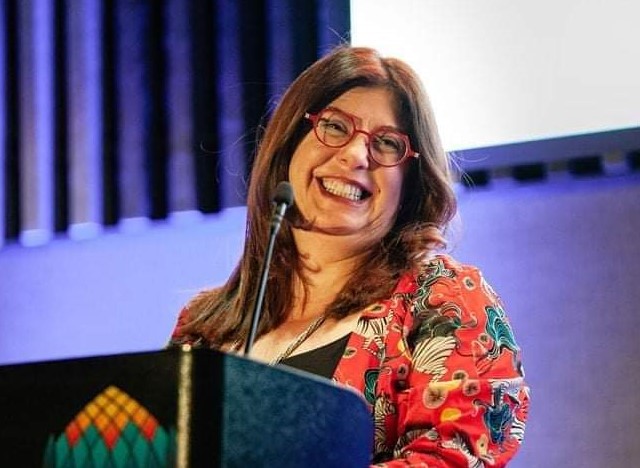Voices
Posing and posturing

Since the conflict began, members of the Board have been inundated by requests for interviews and comment. We have made every effort to accede to these requests so that no opportunity to get our voice out there is lost. Recently, I was interviewed twice on the upsurge in antisemitism locally. Israel’s decision to recall its ambassador for consultation followed by the vote on Tuesday, 21 November, in Parliament to suspend diplomatic ties with Israel resulted in another flurry of approaches for comment, with our national vice-presidents, Zev Krengel and Mary Kluk, being interviewed by, inter alia, SABC News and SAfm.
Regarding Ambassador Eli Belotsercovsky, we responded that it was a pity that the situation in the country had deteriorated to the degree that he has been recalled for consultation. We trusted that this, as well as the recall of the South African embassy staff in Israel, would be temporary and that dialogue and engagement would soon be resumed. So far as the debate in Parliament went, we commented that it was a pointless exercise since the executive and not Parliament determined international relations. Certainly, the appalling scene that was allowed to play out was disgraceful, but we also need to cut through what’s no more than political posturing and what will in reality change on the ground. To reiterate what we have said on the matter, the decision to close an embassy or downgrade diplomatic relations isn’t made at parliamentary level but is an executive decision, made by cabinet and the president. Practical considerations, which were largely ignored in the parliamentary discussion and vote, will need to be considered prior to any decisions being made.
Though Belotsercovsky has returned to Israel for consultation, the Israeli embassy and consulate remains fully functional. Deputy Ambassador Adi Cohen Hazanov is here, as are consular staff, and operations continue. Over the next days and weeks, we’ll address the issues that are playing out in determining the future status of the Israeli embassy in Pretoria and the South African embassy in Tel Aviv. Where necessary, we’ll challenge issues that have an impact on our community, using whatever is required, including local and international meetings, the media, and the legal realm.
Continued incitement
On Monday, 20 November, President Cyril Ramaphosa finally responded to the high levels of incitement to hatred and violence around events in the Middle East by urging people to “guard against this conflict turning us against each other as South Africans”, no matter how strong their views on the matter. He also reiterated that the Constitution protected everyone’s right to freedom of opinion, expression, and association, and that there was “no place in South Africa for violence or threats of violence against those who hold contrary views”.
Coming as it did after the violent disruption of two Christian prayer meetings in Cape Town, along with mounting threats and attacks against the Jewish community, Ramaphosa’s call, however late, is to be welcomed. As soon became apparent, however, not everyone got the message. Less than 24 hours later, Al Jama-ah city councillor and former Johannesburg Mayor Thapelo Amad posted shocking images of himself posing with an assault rifle while declaring his unequivocal support for Hamas. Previously, he had posted a comment declaring, “Death to the Zionist Israeli and its supporters!” We have written to Ramaphosa calling on him to address this issue and for Amad to be strongly censured.
- Listen to Charisse Zeifert on Jewish Board Talk, 101.9 ChaiFM, every Friday from 12:00 to 13:00.
